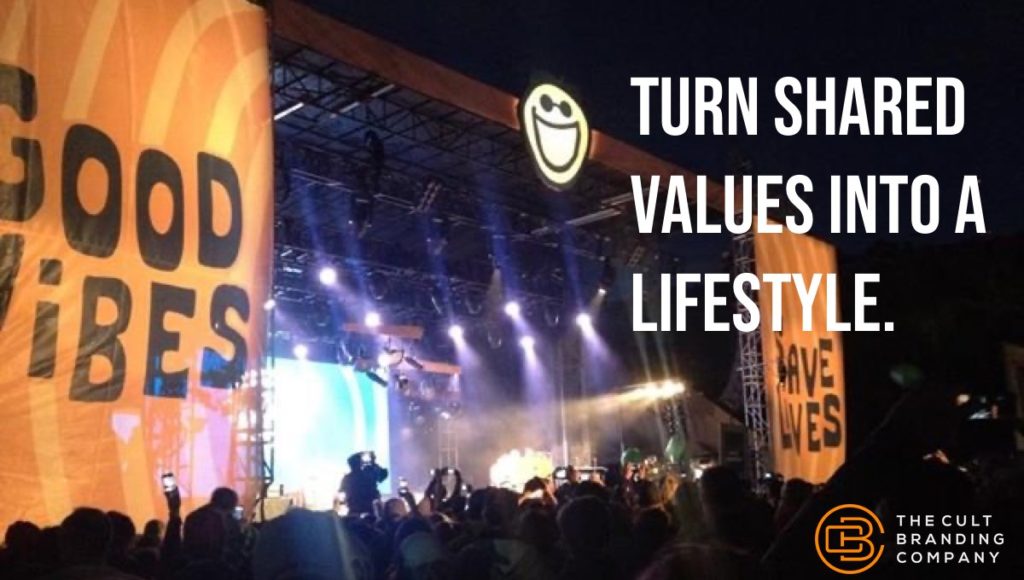
As human beings, we have many different kinds of relationships. The relationship you have with your boss is probably very different than the relationship you have with your romantic partner, and both of these relationships are different from the relationship you have with your favorite baseball player and the kid who was your best friend in third grade.
We not only have relationships with other people, but also with ideas and philosophies. Identifying yourself as a skeptical person or an Evangelical Christian, for example, will impact the way you view and interact with the world.
We also have relationships with inanimate objects, such as cars or roller coasters. You’ve surely heard people proclaiming how much they love (or hate) their cars. Space Mountain, one of Disney’s flagship rides, is so beloved by some people that they have their weddings there.
Brands are a unique combination of a set of ideas and inanimate objects that serve as an ideal platform for relationships.
A Cult Brand is born when a group of individuals rally around a brand’s beliefs and values and the lifestyle that supports those beliefs and values. These brands spark a magical participation with their customers.
When people feel bound to a group or community of shared beliefs, at least part of their identity is tied to the group.
Allowing Customers to Express A Deeper Part of Themselves
You can be a corporate attorney running frantically from meeting to meeting, but when you enter a Jimmy Buffett concert you morph into a Parrot Head; litigation, conference calls, and the stress of daily life slide into shadow.
Now, life is all about taking it easy. The most important things on your agenda are burgers, cocktails, and connecting with friends in the paradise of Margaritaville.
Cult Brands are successful because they allow people to be who they want to be—not the person they’re forced to be to meet the demands placed on them personally or professionally.
Cult Brands provide a route to self-expression that feels natural and intuitive to their Brand Lovers.
Cult Brands provide an experience and a community where Brand Lovers feel like they belong.
Providing The Means for Self-Expression and Belonging
Now, as a result of the pandemic, people are hungry for ways to connect with each other. Bringing customers together has always been important—it’s arguably the hallmark of a Cult Brand—but the need is even greater at the current time.
Keep in mind that finding ways to help customers express themselves is vital to your cause.
Below are a few fun ways to cultivate brand loyalty for your business by helping you attract great customers and build lasting relationships:
Gatherings
Not all your customers have the time or energy to gather together, but some of your customers would actually enjoy gathering together to share ideas, learn, and be together. Apple, in its humble beginnings, hosted Mac user groups where programmers would band together to form small companies to develop software for the startup.
Festivals
Once you have reached a critical mass of Brand Lovers, it might be time for the festivity. Harley-Davidson hosts annual events that bring together over 1 million bikers from around the world. Many people are familiar with event marketing, but if you take that concept to the next level you may be destined to have your own festival, and possibly a unique story will emerge about you in your customers’ minds.
Food
A very interesting fact about Cult Brands is that they tend to share food with their customers. This fact is most likely connected to the idea that if you’re going to have people come together, humans need (and love) to eat. But this simple act of doing what we do each day has a hidden power of influence that makes us like those people that we eat with. Some researchers have shown that judges are more lenient on the offenders after their lunch break. So if it works on those of us with the strongest opinions, it can work for your Brand Lovers who already like you too.
Onward
What beliefs and values do your customers identify with?
How can you build a community to reinforce a lifestyle aligned with those beliefs and values?
